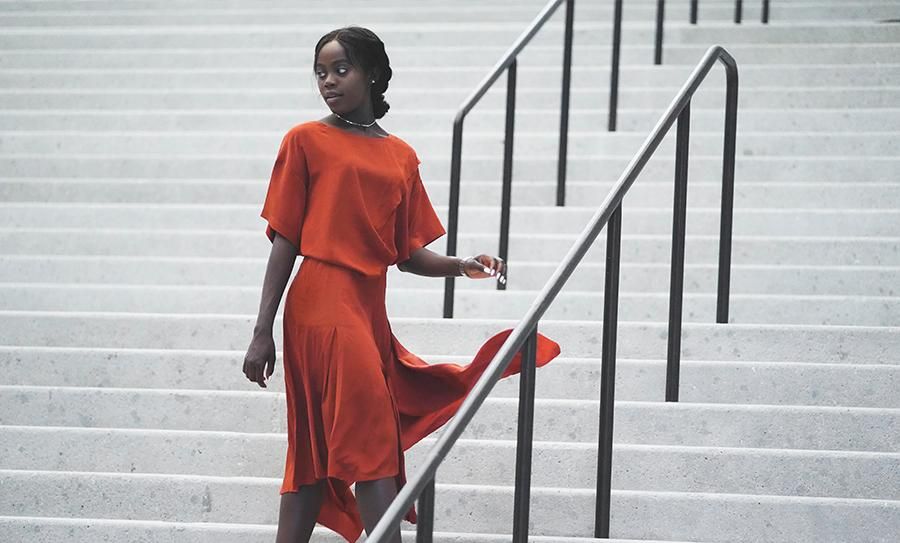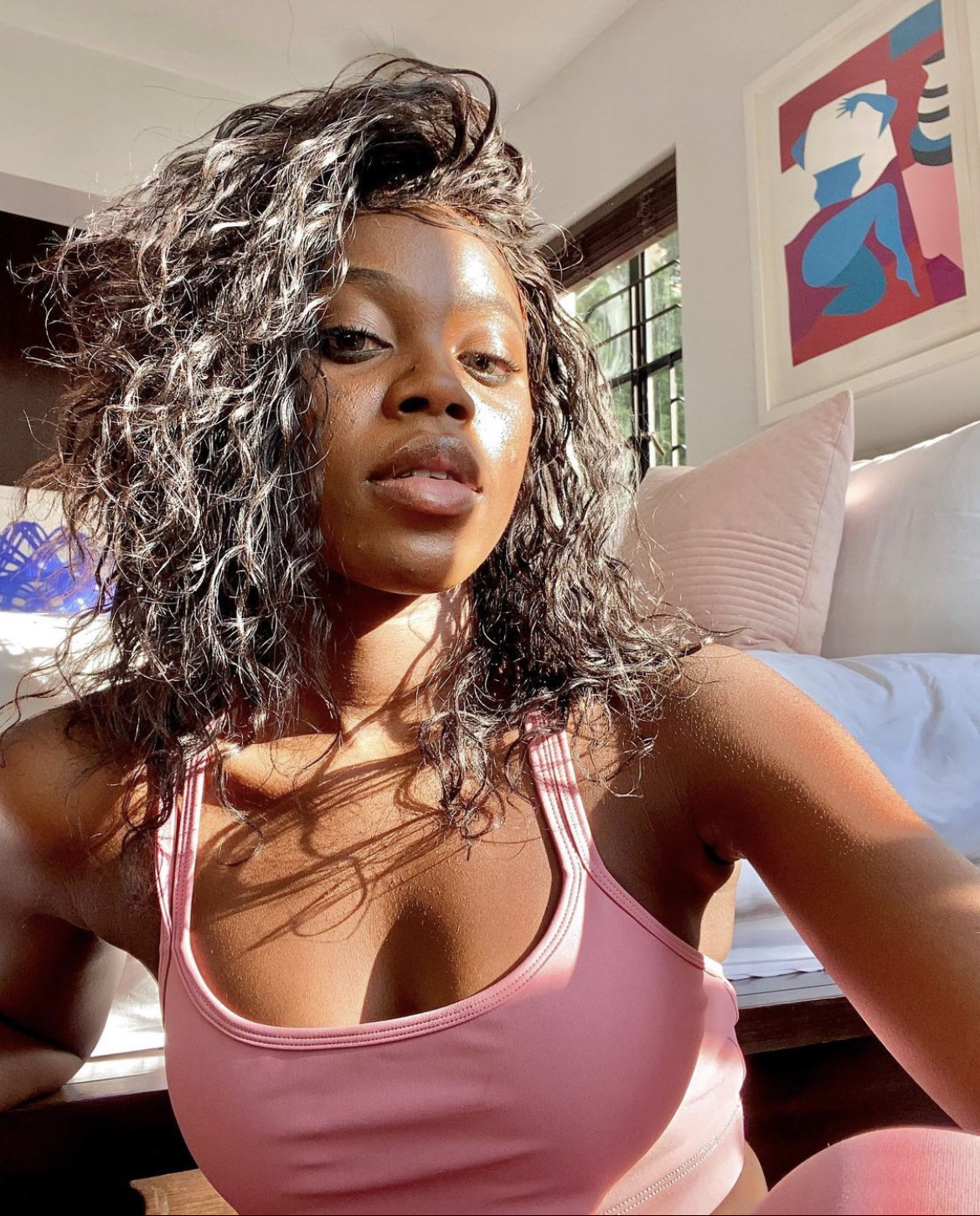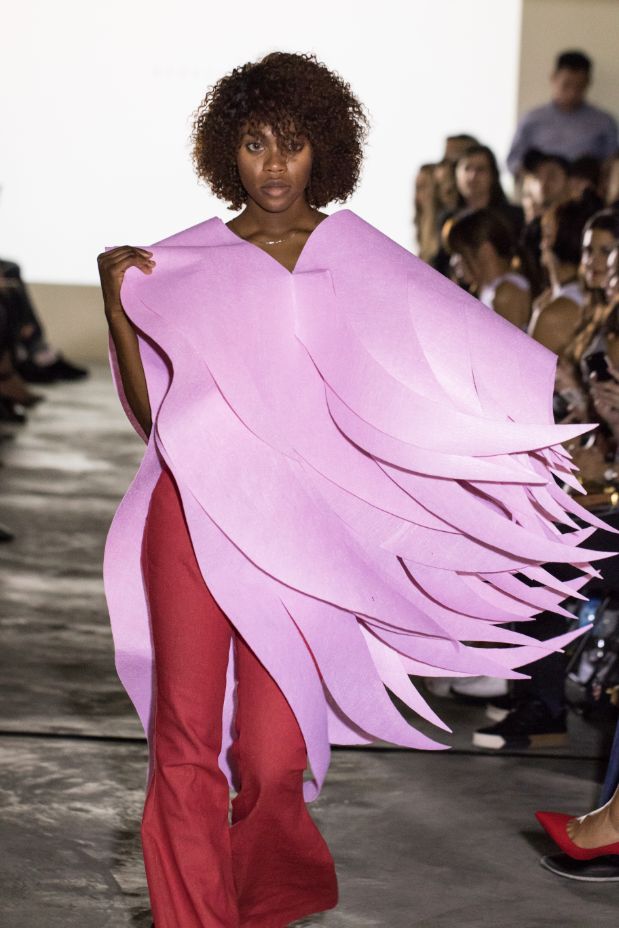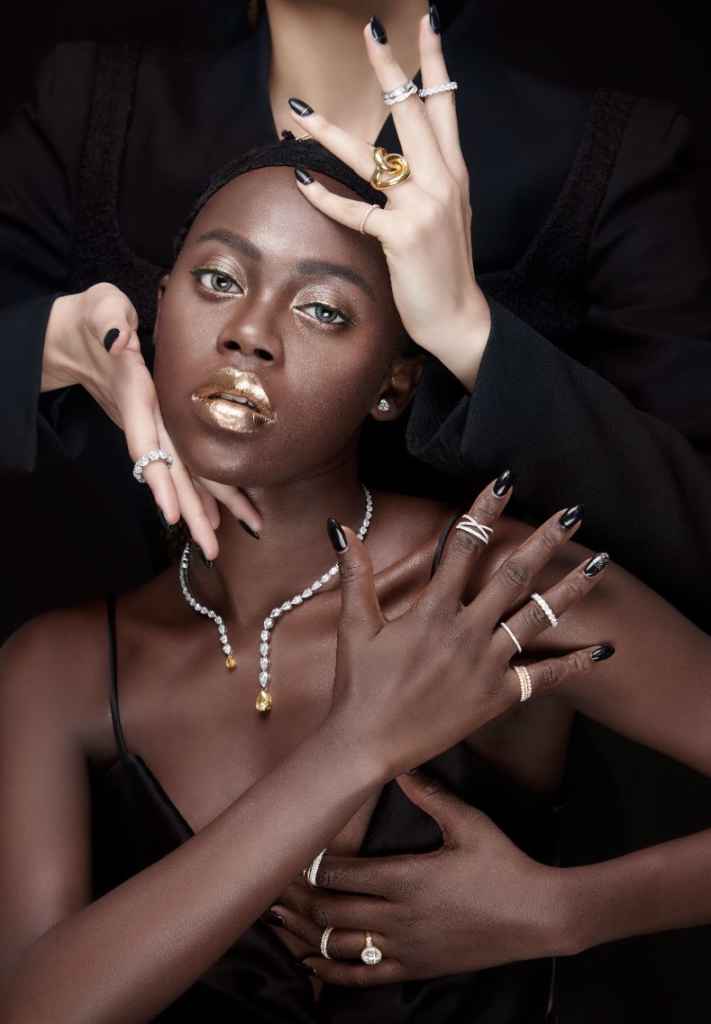Meet Hong Kong’s Harmony Ilunga – model, activist and entrepreneur

A few minutes every morning is all you need.
Stay up to date on the world's Headlines and Human Stories. It's fun, it's factual, it's fluff-free.
Some beauty standards aren’t just unattainable for most people – they’re even rooted in discrimination. Harmony Ilunga, model and founder of Hong Kong’s first diverse modeling agency, Harmony HK, knows this all too well. Ilunga emigrated as a refugee from the Democratic Republic of Congo at the age of 12 to Hong Kong. During her formative years, she faced rejection and constant reminders of her differences in a foreign city.
But, one thing she knew for sure – she wanted to be a model. Though she was turned away from her first agency audition at age 17 because of her skin color, Ilunga persevered. She endured two years of struggling to pay for basic needs while modeling for free to get her foot in the door. This went on until the people she met through her modeling gigs helped her land a campaign for Hong Kong Airport.
During her second year at university, Ilunga decided to reimagine representation within the industry by creating a modeling agency that would celebrate diversity and champion inclusivity. Her social enterprise also donates a percentage of its proceeds to select organizations and even invests in AI technology with the aim of eradicating bias in casting calls.
After being the first in her family to attend college, Ilunga went on to earn a psychology degree from Andrews University in Michigan. This subject helped her better understand the nuances of human behavior. She recently relocated to Toronto to grow her business internationally and ensure the world understands the importance of inclusive representation. But, as Ilunga explains, she still feels Hong Kong is home.
TMS sat down to chat with Ilunga about how she redefined beauty on her own terms, became an entrepreneur and tore down industry standards in favor of more inclusive ones.
Self-love in the face of discrimination
As a pre-teen, Ilunga had no idea what the move to Asia would mean for her. “When I came to Hong Kong, I was 12 and a half, and I had no idea what was going on," says Ilunga. “I knew that I was just following my parents."
As she went through her teenage years, Ilunga started to understand what it meant to look different in a world ruled by unchallenged bias. “When you’re 15 and 16, it’s not an easy age for anyone," says Ilunga. “You’re also coming to the realization that you have different circumstances than a lot of people.
“In a society like Hong Kong, you are reminded on a daily basis that you are different compared to everybody else," says Ilunga. “I see Hong Kong as my home, right? But there was a reminder every day that I was not from Hong Kong."
The rampant discrimination Ilunga faced didn’t stop her from dreaming of attending university or chasing after a successful modeling career. “It’s actually quite bold to dream, especially when there are limitations, and you’re very aware of those limitations," says Ilunga.
Even though she endured trauma at the hands of many, she doesn’t place the blame solely on their shoulders. Instead, Ilunga cites the lack of representation and even prevalent harmful representation as some of the primary culprits behind bias. From dealing with daily discrimination and stereotypes to trying to fit in during her teen years by lightening her skin, Ilunga has come a long way.
Exposure to more positive representations like Black Instagram accounts featuring beautiful dark-skinned girls rocking Afros to confident actors like Taraji P. Henson helped her see things differently. Finally, there came a day when she decided to accept herself from that moment on.

“I think I remember just waking up and saying, ‘You know what? I’m very beautiful,'" recalls Ilunga. “And I just stopped wearing things that made me look more Eurocentric, and I embraced my dark skin, and I stopped using any lightening product."
But, Illunga’s path to modeling wasn’t an easy one. She remembers skipping meals and going hungry just so she could pocket the money her parents gave her for school, using it instead to get to auditions. She modeled for free starting out just for exposure and the opportunity.
“I have this memory now, talking about it, I remember I went to this high school, and I was hungry. And I had to keep that $20 to pay my transportation," she says. “It’s hard. It was maddening. And imagine not getting paid but because I had so much passion for it, I didn’t care. I just went. I didn’t want to miss anything. I was checking Facebook, Instagram, whatever was happening, just so that I would be able to go with literally no money in my pocket."

For Ilunga, runways are a path to confidence and self-love. “I feel like I’m in control of the room, and I just I feel like the world is looking, but I’m in that moment of myself," she says. “I forget everybody else, it’s me and the camera. It’s about the happiness that I have and also the representation … The moment of being able to represent and be in the moment of happiness, you know? I feel a peace of mind."
Harmony HK’s mission

Ilunga was in her second year at university in 2018 when she decided she wanted to start Harmony HK. “I got into the modeling and fashion world and saw what was missing and I wanted to create it for people that are like me. Because I know how it feels to have a passion and not know where to begin," she explains.
“My idea for Harmony HK was just to create a platform to celebrate diversity and inclusion. That was the goal. I didn’t know what I was doing, but I knew what I wanted."
She officially launched the agency in 2020, during the height of the Black Lives Matter movement. While countless companies in recent years have jumped on the diversity and inclusion bandwagon, Ilunga looked on with critical eyes. She questioned the motivations behind this wave of corporate reformation.
“This is why I say inclusivity matters," explains Ilunga. “Being diverse, you know, you can have five, let’s say, Black, ethnic minority, LGBTQ, a disabled person, whatever. If these people are not included, are not being inclusive in part of the talk that is being taught in the company, then it’s nothing. You’re trying to look good."
Ilunga wanted to do more than fill diversity quotas with her agency. This means providing thoughtful representation, listening to silenced voices and respecting the differences between people.
“The simple way I can put this, because, again, as I said, people always confuse the two. Diversity is about having a seat at a table. Inclusivity is about your voice being heard."
The agency’s mission is twofold – to normalize inclusive casting and redefine beauty as a quality found in all colors, shapes and sizes. This goes beyond the agency’s models. They hope to reach audiences who’ve also felt cast aside by Western concepts of beauty.

Since Harmony HK’s launch, Ilunga has spread her mission throughout the modeling and art communities. Harmony HK currently represents models traditionally overlooked in fashion and art, including refugees, racial minorities, plus-sized models and members of the LGBTQ+ community, as just a few examples.
Ilunga also hosts biannual fashion shows at high-profile venues to highlight minorities and raise awareness about refugees in Hong Kong. A fifth of the proceeds goes to organizations championing causes that fit Harmony HK’s mission.
But, it’s now grown well beyond a modeling agency. Ilunga recently completed a diversity and inclusion course at Cornell University. So, from videography and photography services to studio booking to now offering diversity and inclusion consulting for companies – Harmony HK is looking to make change everywhere it can. And this includes how companies and cultures can do better when it comes to inclusivity.
“We’re still a fashion company, but we are not limited only to fashion," Ilunga explains. “Here’s the thing about life, we need to adapt to our environment. We can’t be stuck in one place."




Comments ()